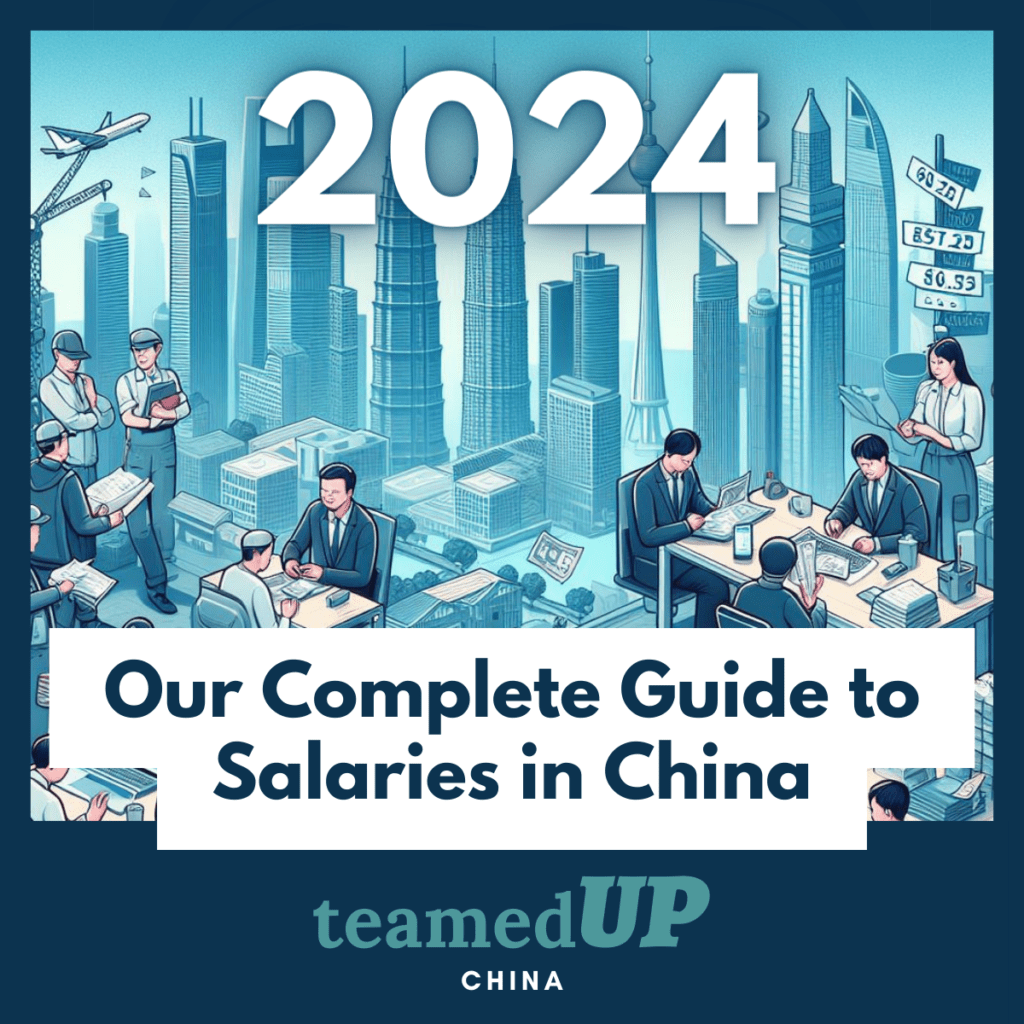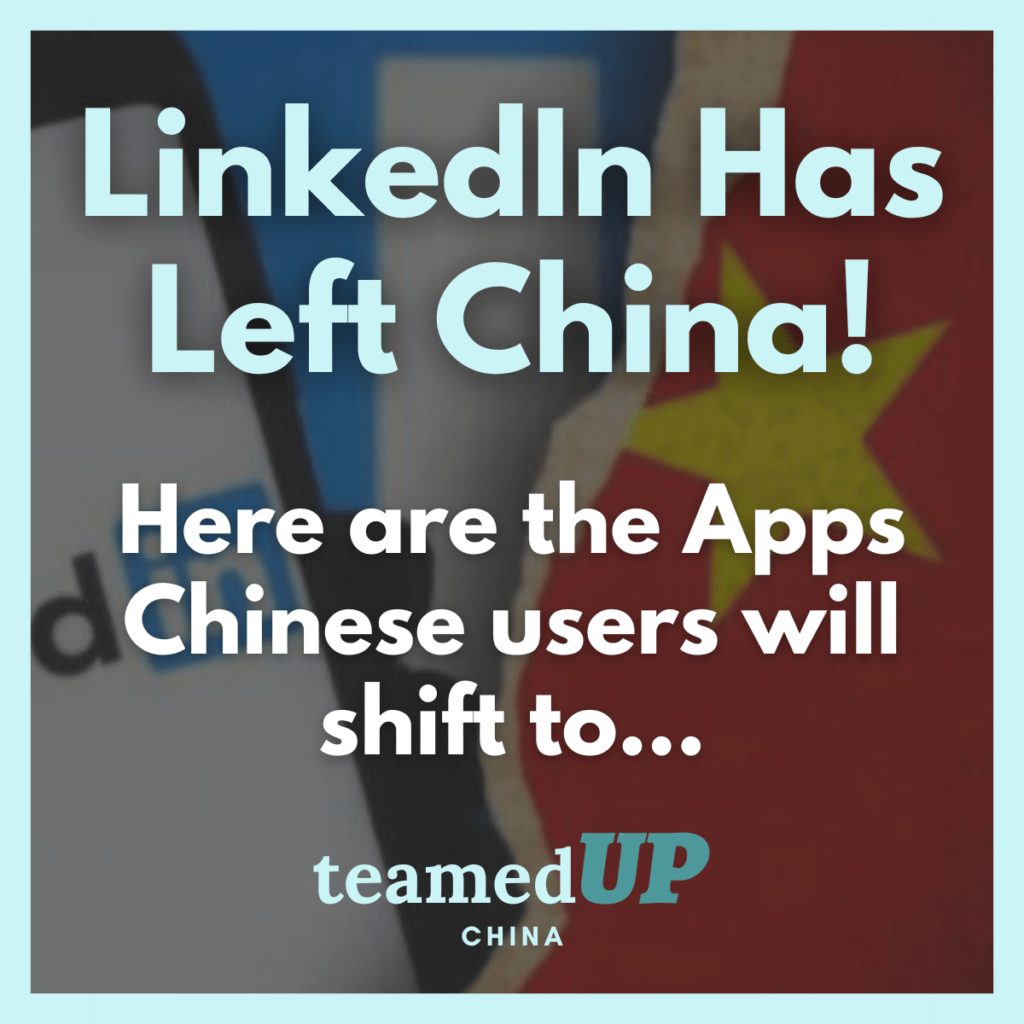Our 2024 Complete Guide to Salaries in China
And so we’re in the thick of 2024, and boy has it been another interesting one in China! As it comes out of a long COVID winter, China’s business leaders are ‘cautiously optimistic’ about the economy’s near-future growth. We’re thinking it’s a great time to compile the information we’ve amassed on salaries in China throughout 2023 & 2024! Hiring in China? We can help. Post open roles across China’s top job sites, classifieds, and networking platforms — lower hiring costs by over 80%. Edit Template 1) Average Salary in China, Country-wide In Q2 2023, the average salary across 38 Chinese cities was ¥10,266 RMB ($1,430 USD) per month. In Q2 2023, the average recruitment salary of enterprises in 38 Chinese cities was ¥10,266 RMB ($1,430 USD) per month. This average is up 1.6% since Q1 2023, but still down around 0.7% compared to the same time period last year Q2 2022. Breaking it down a bit further: The 25th percentile of recruitment salaries is ¥6,001 RMB ($836 USD)/month, The median is ¥8,001 RMB ($1,115 USD)/month, The 75th percentile is ¥12,001 RMB ($1,672 USD)/month. Related: Average Salary in China: Local Data 2023+2024 2) Average Salary in China by City Shanghai takes the #1 spot in 2023 with an average monthly salary of ¥13,486 RMB ($1,879 USD). Zhaopin monitored 38 core cities across China. Shanghai has held the top spot on this list for quite some time, and comes in at the #1 spot again with an average monthly salary of ¥13,486 RMB ($1,879 USD)/month. Beijing followed with an average monthly salary of ¥13,438 RMB ($1,872 USD)/month. Shenzhen ranked third with an average monthly salary of ¥12,774 RMB ($1,780 USD)/month. Hangzhou, Nanjing, Suzhou, Guangzhou, and Ningbo round out the top 8. We also have median salary data here and can see the median salary of the top 3 cities – Shanghai, Beijing, and Shenzhen – exceeded ¥10,000 RMB ($1,393 USD)/month. It’s also interesting to note that there is a 59% difference in the median salary between the first (Shanghai) and last (Harbin) cities on this list. Related: Top 10 Highest Paying Cities in China (2024) 3) Fastest Growing Wages in China by City Out of 38 Chinese cities, Wuxi ranked first with salary increasing by 6.1% year-on-year. Here we have the year-on-year salary growth rankings of the 38 Chinese cities. Wuxi ranked first, with salary increasing by 6.1% year-on-year. Lanzhou and Xiamen rounded out the top 3. Suzhou and Ningbo had year-on-year growth rates of 2.1% and 1.6%, respectively, ranking fourth and ninth. The salary of the Intelligent Manufacturing industry led to the rise in some key cities of the Yangtze River Delta. The monthly salary of enterprises in the electronic technology/semiconductor/integrated circuit industries in Wuxi, Suzhou, and Ningbo increased by 8.6%, 5.8% and 10.7% respectively compared with the same period last year. The instrumentation and industrial automation industries increased by 7.1%, 6.9%, and 15.3% respectively. This points to strong development in the regional Intelligent Manufacturing industry. In addition, cities such as Lanzhou, Xiamen, Kunming, Changchun, and Shijiazhuang also experienced relatively obvious growth rates in this quarter, mainly driven by the recovery of the consumer industry. The average recruitment salary in the fast-moving consumer goods industry increased by 18.3%, 5.8%, 17.7%, 8.8%, and 14.2% respectively compared with the same period last year. Related: How a Plastics Manufacturer Hired an Accountant in China How a Mining Equipment Manufacturer Hired an HR Manager in China How a Leading Apparel Manufacturer Successfully Hired an Apparel Developer in China 4) Highest Paying Job Sectors in China, Country-wide Coming in at #1 is the Securities & Investments Industry, with an average salary reaching ¥13,737 RMB ($1,912 USD)/month in 2023. Coming in at #1 is the fund/securities/futures/investment industry, with an average salary reaching ¥13,737 RMB ($1,912 USD)/month in Q2 2023. The average salary level of other financial industries such as banking at ¥11,841 RMB ($1,648 USD)/month and insurance at ¥11,269 RMB ($1,568 USD)/month also ranked high. As expected, technology-related industries also fared well here. The electronic technology/semiconductor/integrated circuit industry ranked second, with an average recruitment salary of ¥12,175 RMB ($1,694 USD)/month. Also in the top ten are computer software, IT services, and computer hardware. In the Internet & e-commerce industry, the average recruitment salary was ¥10,705 RMB ($1,490 USD)/month. This is a year-on-year decrease of 4% and drops the sector’s ranking out of the top 10, to 16th. Another insight to pull out of this is from two of the top industries: energy/minerals/mining and aviation/aerospace. The average salary of these industries ranks high, but the median salary ranks relatively low – showing that a small number of high-paying jobs drive the overall average salary of the industries. Related: Financial Analysts in China: Salary Data and Hiring Guide Average Salary at China’s ‘Big 3’ Tech Firms: Tencent, Alibaba, & Baidu 5) Fastest Growing Wages in China by Industry The average salary in the Semiconductor Industry led the rise in 2023, with a year-on-year increase of 5.9%. The average salary in the electronic technology/semiconductor/integrated circuit industry has continued to rise, with a year-on-year increase of 5.9%. Against the backdrop of an aging population, China’s residents’ demand for medical and medical services is increasing. This demand has led the way for supportive national policies and increased investment in research and development. Recruitment salaries in industries such as industrial automation, high-tech manufacturing, and new energy continued to rise, with a year-on-year growth rate of more than 3% in the second quarter. Related: Tech Salaries in China: What Top Companies are Paying Talent Mechanical Engineers in China: Salary Data and Hiring Guide Hardware Engineers in China: Salary Data and Hiring Guide 6) Highest Paying Jobs in China, Country-wide Chip Engineers top the list, earning an average monthly salary of ¥26,000 RMB ($3,617 USD)/month. Chip Engineers continue to be the highest-paying occupation, earning an average of ¥26,000 RMB ($3,617 USD)/month. Next up are Senior Managers and Artificial Intelligence Engineers – earning an average of ¥22,739 RMB ($3,164 USD)/month and ¥21,701 RMB ($3,019 USD)/month respectively. Rounding out




